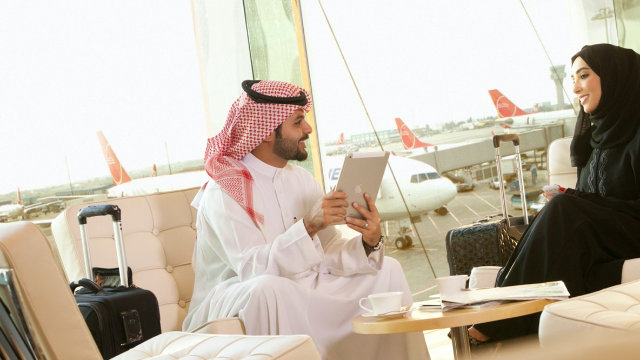
Facebook report highlights live shopping and augmented reality are the most sought-after digital immersive experiences amongst Saudi consumers
The strength and influence of Saudi Arabia’s economy in the world marketplace has grown exponentially over the past few decades. As one of the world’s fastest-growing markets, the kingdom is putting the best foot forward in globalisation.
According to a 14-market study conducted by Ipsos and Facebook IQ focusing on consumer trends and habits in emerging markets, 82 percent of consumers in Saudi Arabia agree that more brands and businesses from the country are becoming well known around the world. In the study, titled Emerging Trends: The Forces Shaping the Future Today, 67 percent of consumers also believe Saudi Arabia is now more connected to the rest of the world than ever before.
Amid the coronavirus lockdowns, people have been turning to social media to stay connected. Whether it is to shop online, discover new brands or simply join online communities, there is increased social media usage to maintain social activity, especially when coming together face-to-face has become restricted. According to the study, 63 percent of consumers surveyed are also increasingly showing interest in joining online communities in the kingdom, with 70 percent among those surveyed members of an online community.
While Instagram is more likely to be used for communities on food, drinks (47 percent) and fashion (48 percent), Facebook is more likely to be used for gaming (39 percent). One example of how brands have capitalised on community engagement is Nestlé Middle East. The food and beverage giant created a bot for Messenger that kept its brands at the top of people’s minds during Ramadan and resulted in people spending 2.9 times longer on its Nestlé website compared to other campaigns. By suggesting helpful products and supplying useful information, the bot could keep Nestlé and its brands in people’s daily conversations.
“Social media platforms such as Facebook and Instagram are proving to be essential growth drivers for local brands both in and from Saudi Arabia,” said Ramez Shehadi, Managing Director for MENA at Facebook. “As we can see in the Ipsos and Facebook IQ research, people are on the hunt for new ways to reclaim their time, find joy in online shopping, interact with brands that have purpose, and participate in global and local communities that share interests and passions, all through a variety of emerging technologies. Consumers are readily and rapidly embracing change, and brands can build stronger connections by developing innovative and meaningful digital experiences.”
Ninety percent of consumers in the kingdom are actively looking for ways to simplify their lives. These convenience seekers are looking for ways to do the things that actually matter to them – and whether that’s being together with loved ones (44 percent), getting fit (51 percent), learning new skills for a new career (54 percent) or giving back to their community (25 percent), time is the most valuable currency on the journey to personal.
Saudi consumers are also demanding a new kind of relationship with brands. Among those surveyed, 87 percent said social media has allowed them to interact more and deepen their relationship with brands, with 84 percent open to trying new and different ways of shopping. At the forefront of this is live shopping as well as augmented reality. Live shopping, or live stream shopping that has digitised the home shopping experience via social media, apps and websites by providing a real-time feedback loop for buyers, including reviews and recommendations of products, is also gaining immense popularity among Saudi consumers. Nearly half of the consumers surveyed (48 percent) say their live shopping has increased over the past year with key categories such as luxury fashion, auto accessories, sport equipment and travel accessories the most popular.
Among people surveyed in Saudi Arabia, 88 percent have used an augmented reality feature over the past year and 78 percent saying it is a fun way to interact with brands. Ninety-one percent of those surveyed are open to brand-led AR features. For instance, 29 percent of Instagram users use AR on Instagram on a weekly basis. This demonstrates the immense opportunities marketers have with AR to market their products in more innovative ways.
“People continue to experiment with different features and services in their search for convenience,” added Shehadi. “Brands that figure out how to give people time back may earn a timeless place in consumers’ hearts and wallets. For marketers, whether you engage people via live shopping, AR or interactive polls in stories, the goal should be adding value versus using the technology in and of itself.”
The study was conducted by Ipsos and Facebook IQ to gain a global view of a future that, in many ways, is arriving ahead of schedule. Other markets surveyed include Australia, Colombia, Indonesia, Nigeria, the UK, Vietnam, Argentina, Brazil, India, Mexico, The Philippines, Thailand and the US. For more information and see detailed statistics from the study, visit: https://www.facebook.com/business/news/insights/emerging-trends